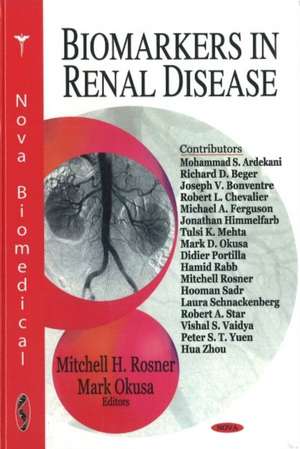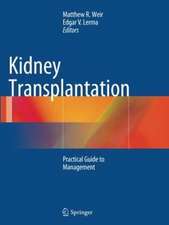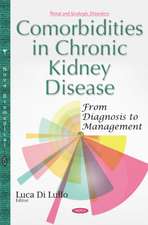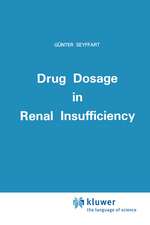Biomarkers in Renal Disease
Autor Mitchell H. Rosner, Mark Okusaen Limba Engleză Hardback – 30 iun 2008
Preț: 742.81 lei
Preț vechi: 1014.32 lei
-27% Nou
Puncte Express: 1114
Preț estimativ în valută:
142.14€ • 151.99$ • 118.51£
142.14€ • 151.99$ • 118.51£
Carte disponibilă
Livrare economică 28 martie-11 aprilie
Preluare comenzi: 021 569.72.76
Specificații
ISBN-13: 9781604561135
ISBN-10: 1604561130
Pagini: 151
Ilustrații: tables, charts & illus
Dimensiuni: 183 x 264 x 17 mm
Greutate: 0.56 kg
Ediția:1
Editura: Nova Science Publishers Inc
ISBN-10: 1604561130
Pagini: 151
Ilustrații: tables, charts & illus
Dimensiuni: 183 x 264 x 17 mm
Greutate: 0.56 kg
Ediția:1
Editura: Nova Science Publishers Inc
Cuprins
Preface; Contributors; Introduction; Phases of Biomarker Development; Biomarkers of Oxidative Stress in Chronic Kidney Disease; Biomarkers in Acute Kidney Injury; Metabolomic Approaches to Novel Biomarker Development; Biomarkers in Kidney Transplantation; Biomarkers in Obstructive Uropathy; Index.
























